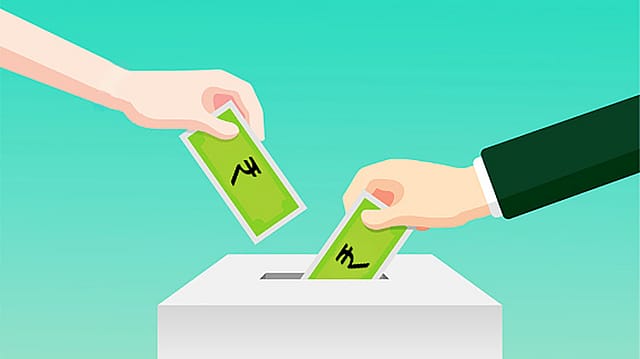Making philanthropy scalable, replicable
ADVERTISEMENT

The Young Indian Philanthropic Pledge (YIPP), a platform that brings together new-age philanthropists mostly from the start-up ecosystem, recently partnered with the Government of Karnataka to transform 105 schools and adjoining anganwadis as 'model Schools' by 2025. The YIPP which comprises start-up stars such as Nikhil Kamath (co-founder, Zerodha), Sujeet Kumar (founder and CEO, Udaan) and Prashanth Prakash (co-founder and partner, Accel) has collectively raised ₹40 crore for this project.
As part of the model school project the YIPP will get leading edtech companies to set up smart class rooms as well as come up with techniques to improve enrolment and retention of students (especially in middle and high school which has maximum drop-outs) by building capacities of teachers, augmenting physical and digital school infrastructure and employment readiness skills. Though the model school project is first getting rolled out in Karnataka, the idea is to scale up and replicate in other parts of the country. Bulk of the drop-outs happen in middle school or high school, as that is when the parents in rural India want their children to join the workforce and contribute to the family earnings. A lot of them (especially girls) drop out due to lack of basic amenities in school such as toilets.
"We will bring in flexibility where students can choose the areas they want to specialise in, we are helping them choose their focus area. We have partnered with Sambhav, which will help us in building some of these playbooks. From enrolment to involving school communities and from capacity building of teachers to career guidance, can we experiment in 100 schools and build a good replicable framework or blueprint," explains Prakash of Accel.
January 2026
Netflix, which has been in India for a decade, has successfully struck a balance between high-class premium content and pricing that attracts a range of customers. Find out how the U.S. streaming giant evolved in India, plus an exclusive interview with CEO Ted Sarandos. Also read about the Best Investments for 2026, and how rising growth and easing inflation will come in handy for finance minister Nirmala Sitharaman as she prepares Budget 2026.
The larger goal of YIPP (which comprises 10 new-age givers) is to put a structure to giving. The YIPP members (who are contributing anywhere between 1% and 25% of their personal wealth towards philanthropy) are putting their start-up learnings in the philanthropy world. Scale and replication would be important elements. "We are going to curate projects which can be scaled and replicated. We relate to all of this in the venture world. There are some unsolved issues in health, education and environment and we can't wait another 75 years to resolve them. Therefore, we decided to come together and do some of what we have done in the start-up world, put a model to create change and impact in the next 25 years," explains Prakash.
Apart from education, the YIPP is also planning to curate projects on nutrition and environment. Measurability and impact are as important in philanthropy as it is in business. And, all the YIPP projects, says Kumar of Udaan, would be built on the metric of accountability. "We will create infrastructure as well as measure the impact it is creating. The Government has the largest penetration of schools but they are not able to run them efficiently. We will help the Government with data, connect them with NGOs working for similar causes as well as get them better visibility and accountability."
"We would like to document the results that our interventions are bringing about and then encourage them to be replicated in other states and districts," adds Zerodha's Kamath.
The YIPP members believe that in order to achieve scale in giving, they have to partner with the Government. "If we have to influence 10 million children, we have to create large-scale societal change by working closely with the Government. We have to have the Government authorities support in order to offer quality education. Once we get the right people, scale is a matter of time," explains Prakash, who says that partnership with the government for social causes is something he has learnt out of experience.
"I had partnered with the Government of Karnataka for Project Prerna, through which we motivated children to come to school and build a state of mind to learn. There are 40,000 schools which are part of Project Prerna, which is now scaled to Maharashtra and other states. The biggest learning was the scale we were able to achieve, something we could have never done had we not partnered with the Government," Prakash further explains.
So, will YIPP personally manage all the initiatives it invests in? Not necessarily, says Kamath. "The idea is not to operate the project but ideate the project. The operations will be outsourced to relevant experts, for instance, people who are into operating digital classrooms and so on."
Apart from the new-age givers below the age of 45, YIPP also has support from the Bill and Melinda Gates Foundation which would be putting in 50% of the money for all the philanthropic projects it creates.
